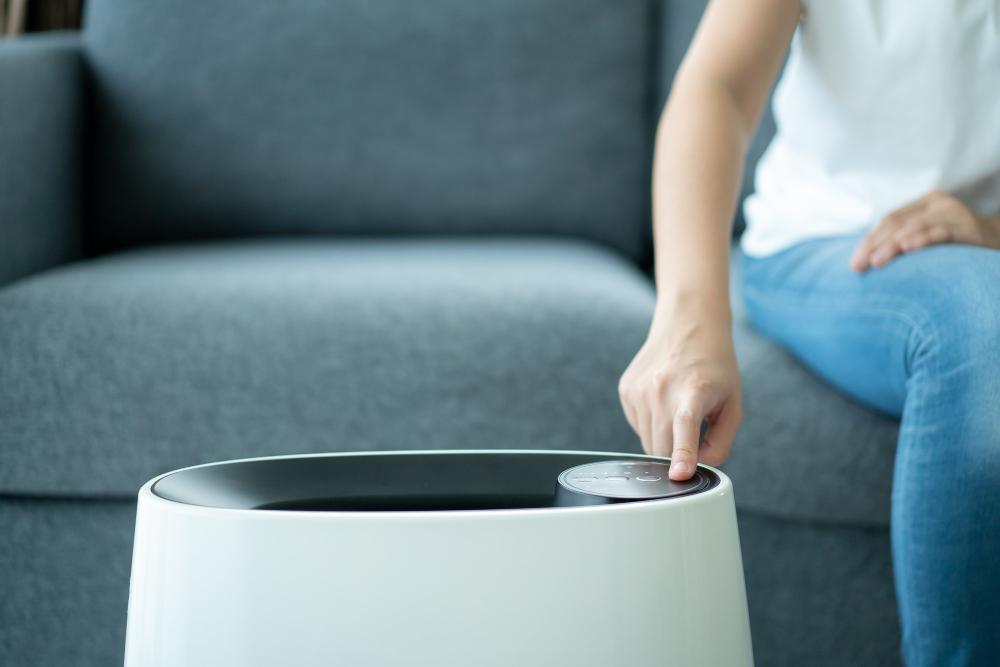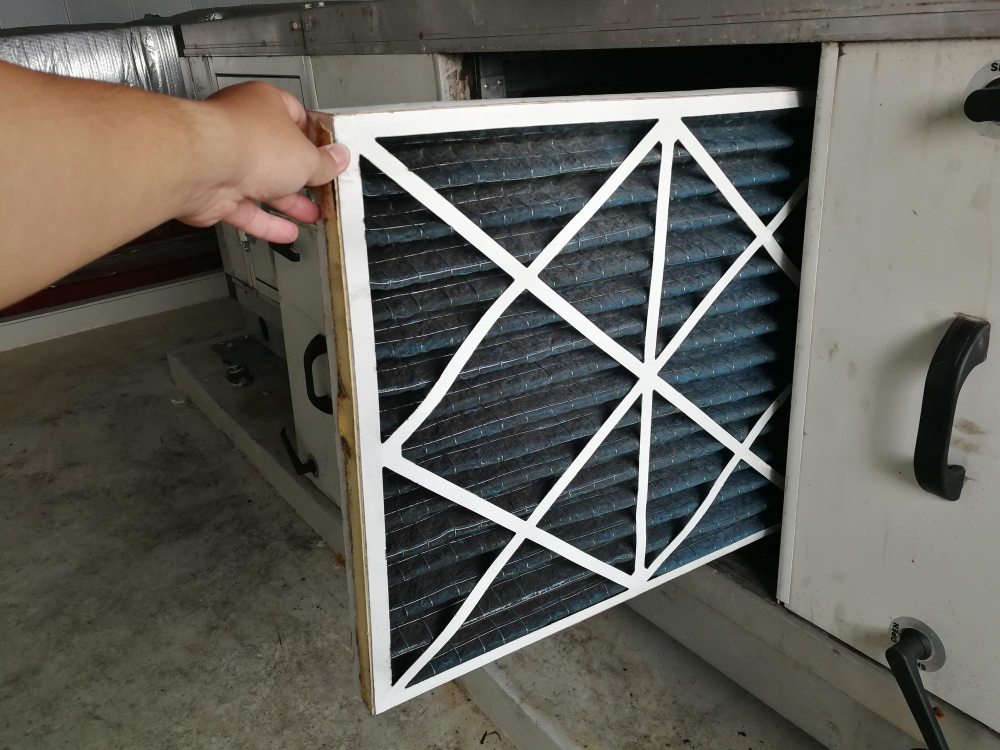Chances are you've seen an air-quality advisory posted for your locale. But you've never seen one posted for your indoor air. Yet poor indoor air quality can cause various health problems, ranging from minor (eye irritation) to major (cancer).
There are a number of factors that contribute to poor indoor air quality. But on the flip side, there are some simple and concrete steps you can take that will contribute to better air quality inside your home. In this article, we'll take a look at them.
Air pollution in your home can be as bad or worse than pollution in outdoor air. And since most of us spend more time indoors than outdoors, poor air quality inside can be a big problem.
But don't panic. There are a lot of things you can do that will have a big effect on improving indoor air quality. We'll examine the effects of poor air quality inside, then offer some concrete steps you can take to improve air quality inside your home.
According to the US EPA, the detrimental effects of poor indoor air quality are many. Health effects can include:
There are many different triggers for these effects. Radon gas in basements and subfloors can cause lung cancer, while pet dander, dust mites, and mold can trigger asthma attacks.
Other factors affect indoor air quality, too. These can also include the air exchange rate, the outdoor climate, and our own behaviors.
Let's examine some solutions.
The modern home’s HVAC system is a two-sided sword. Sometimes our central heating and air conditioning system can be at the root of problems, particularly if the system’s ducts are dirty, or mold has gotten into them. However, your HVAC system can also serve as the center of your air-quality improvement project through the addition of a whole-home air purifier. Here are a few of the things that whole-home air purifiers can do:
A whole-home air purifier may not be as expensive as you think and can provide real benefits in improving your home’s air quality. Get in touch with us to check out your options for adding a whole-home air purifier to your home.

There's certainly something appealing about a crackling fireplace or the warmth of a wood stove. But the side effects can be bad for your health. Burning wood releases fine and ultrafine airborne particles into the air of your home. These harmful particles contain carcinogenic chemicals and can also scar your lungs.
If you can't resist the urge to sit by the fire, limit how much and how long you use your fireplace for. Dry, seasoned wood also burns hotter and releases fewer byproducts. Using an air purifier with HEPA filters will help remove many of the byproducts of a fire.
Your current HVAC system probably does more to keep your air clean than you think. That's because all the air that circulates through it must pass through a filter. But if you’re not changing the system’s air filters regularly, you're not enjoying the benefits of this.
When you're changing the filter, don't be tempted to grab the cheapest one off of the shelf. The quality of filter can make a big difference in how clean the air in your home is. Air filters are rated using MERV, the Minimum Efficiency Reporting Value. The higher the MERV rating, the better the job your filter will do.
While you're at it, don't forget the other filters in your home. Change the bag in your vacuum cleaner, and consider stepping up to HEPA quality filters when possible to cut down on dust and particulate distribution.
Don't forget the filters for portable air filters and other similar devices - change them on a regular schedule.

Even if you've changed the filters in your HVAC system, you may still have a problem — your HVAC system’s ducts. Your ducts may hold dust, dirt, animal dander, rodent droppings, mold, and other unsavory materials.
And if you have an older home, these may have accumulated for many years. The materials are a source of airborne pollution and your system may be distributing it around your home without you even realizing it.
Have your home’s HVAC ducts professionally inspected and cleaned on a regular basis. This cleaning will reduce pollutants in your home, and clean ducts will distribute air more efficiently, letting your system operate more efficiently.
High humidity isn't just uncomfortable. If the air in your home is damp, there’s an increased possibility of mold growing in damp areas. Mold can be a major respiratory irritant and cause other health issues as well.
Portable dehumidifiers throughout your home can help control humidity. But while this is a relatively inexpensive option, they're often noisy and require you to empty their catch basins on a regular basis.
Consider having a whole-home dehumidifier installed as part of your HVAC system. It will automatically monitor and control the humidity levels in your home.
It's been said that a clean home is a healthy home. And that's especially true when discussing indoor air quality. Despite your best efforts, allergens like dust, pet dander, and even chemical residue will settle on your home’s floors, in your carpets, and upon upholstery and other surfaces, ready to be kicked up and distributed through the air of your home.
You can solve many of these issues with good old-fashioned cleaning. Vacuum and mop floors regularly, with a good vacuum cleaner and gentle cleaning solutions. Don't forget to vacuum upholstered furniture and drapes as well. Regular house cleaning will remove pollutants from your home and keep them out of the air.
And wouldn't you rather live in a clean home, anyway?
There are a surprising number of household cleaners and other substances that contain Volatile Organic Compounds (VOCs). These can be potential air pollutants that are found in many common items. These chemicals can build up to irritating levels in poorly ventilated homes. VOCs can be found in:
When used, these chemicals disperse into the air and can cause problems like eye, nose, and throat irritation. Other issues include headaches and nausea, or even damage to internal organs and the nervous system. A well-ventilated home is important when using VOCs, and you should avoid storing them in close proximity to living spaces.
You probably spend a lot of time in your kitchen. But it can be a major source of indoor pollution. Cooking can release high levels of pollutants, including smoke and particulates.
To minimize the effects, make a habit of running your range hood fan when you begin preparing food, not just when you have a smoking skillet. And for a little extra ventilation, open a window when you’re cooking. If you want a bit more ventilation, use a fan in the window to ventilate the kitchen.
Did you know your green thumb can help improve indoor air quality? While having house plants inside isn't a cure-all for overall air quality, they can improve indoor air quality.
In particular, spider plants, peace lilies, and ferns are effective at scrubbing carbon monoxide and other pollutants out of the air. And they look great, too!

The idea that your home's air quality may be harmful to you is sobering. But if you take the idea seriously and take some common-sense precautions you'll reduce indoor air pollutants, lower the health risk caused by indoor air problems, and enjoy all the benefits of clean air inside your home.
As we've seen, there are many simple things you can do to improve your indoor air quality. Others may require professional help. When you need that help, you need a partner you can trust to work with you. If you're in the Dallas/Fort Worth area, your best partner is Team Enoch.
Team Enoch is committed to providing high-quality products and workmanship to our customers, at a fair price. With over 2500 positive reviews, and over 10,000 jobs completed every year, we pride ourselves on ensuring that our well-trained technicians do the job right the first time.
At Team Enoch we have extensive experience in installing a wide range of HVAC heating and cooling equipment, air purifiers, and other gear that can make your indoor air better to breathe. And we also have plenty of experience in installing new roofs, windows, and more.
If you're in the Dallas Fort Worth area and are ready to improve your home's energy efficiency (and earn tax credits) Team Enoch has the expertise to help your out. Contact us for all your home needs. Remember, estimates are always free!
